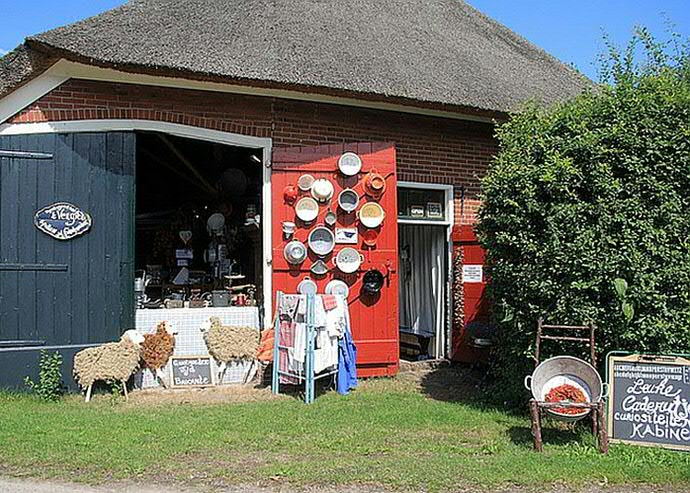Start-up entrepreneurs undeterred by shrinkage

Entrepreneurship plays an important role in the quality of life in areas with a shrinking population. Furthermore, areas experiencing shrinkage are proving surprisingly successful as bases for new businesses. These are the conclusions of a study conducted by business administration researcher Heike Delfmann, who will defend her PhD thesis at the University of Groningen on 23 April.
Delfmann studied the role of entrepreneurship in areas in which the population is shrinking, with a special focus on areas with an ageing population. ‘We always think of shrinkage as a negative trend. But I have concluded that rural areas with a high rate of shrinkage are particularly popular for starting new businesses.’
Motives for start-up entrepreneurs
Delfmann conducted in-depth interviews to examine the motives of various start-up entrepreneurs. ‘New companies starting up in rural areas with ageing populations are often seen as a last-ditch attempt, doomed to failure. We tend to think of entrepreneurs who set up businesses in areas with a shrinking population as people who have lost their jobs and do not want to (or cannot) move. This is not the impression I got from my research’, says Delfmann, who carried out case studies in Northumberland (north-east England) and Westerveld in Drenthe province, the Netherlands.
Delfmann: ‘Most people starting up a business do so because they want to be self-employed or because they want to make their hobby into their job. Some entrepreneurs are forced into entrepreneurship after a negative push (such as redundancy), but even these people had already considered the possibility of starting their own business at one time or another.’
Quality of life
New entrepreneurs make a conscious decision to base their businesses in rural areas. Quality of life is the main reason. They choose the place they want to live, regardless of the employment opportunities. The decision to move to the countryside is largely motivated by the appeal of a certain lifestyle. Delfmann: ‘They are looking for personal happiness rather than maximum profits.’
The type of small-scale businesses that people start when they move to the countryside do not only fit into their rural surroundings, but also attract tourists. More importantly, they breathe new life into the region. They improve the quality of life in the community as a whole by encouraging social interaction between local residents. Delfmann: ‘Even if these businesses only play a very minor economic role, they can make a huge difference to the community. In fact some of them are of more benefit to the community than to the local economy.’
Incentive for employment
‘New companies in areas with a shrinking population have a positive effect on employment in the region, even though the start-ups themselves do not generate as much employment as start-ups in areas of growth,’ explains Delfmann. First of all, there is the direct impact on employment: if someone opens a shop, they will often employ someone else to work in that shop. But new businesses also have an indirect effect on employment in the region, even if they are run by self-employed workers without employees. ‘Any new business stimulates local competition’, says Delfmann. ‘Other local companies will adapt, fold or flourish under the pressure of this increased competition.’
Recommendations
Delfmann thinks that her findings will be of use to municipal policymakers. ‘It is important to keep stimulating and facilitating new business activities in areas with shrinking populations and to make people feel involved in their community. This type of involvement is an important incentive to potential and existing entrepreneurs.’
Curriculum Vitae
Heike Stephanie Delfmann (1984, Osnabrück) read Business Administration and completed a Master’s degree in Small Business and Entrepreneurship at the University of Groningen. She conducted her research in the Department of Economic Geography of the Faculty of Spatial Sciences at the University of Groningen. Her thesis is entitled Understanding entrepreneurship in the local context . Prof. Philip McCann was her primary supervisor and Prof. Jouke van Dijk her co-supervisor, Dr Sierdjan Koster was her day-to-day supervisor. Delfmann has been working as a lecturer in the Department of Business Administration at NHL University of Applied Sciences in Leeuwarden since February.
More news
-
09 December 2025
Are robots the solution?
-
01 December 2025
The power of movement
